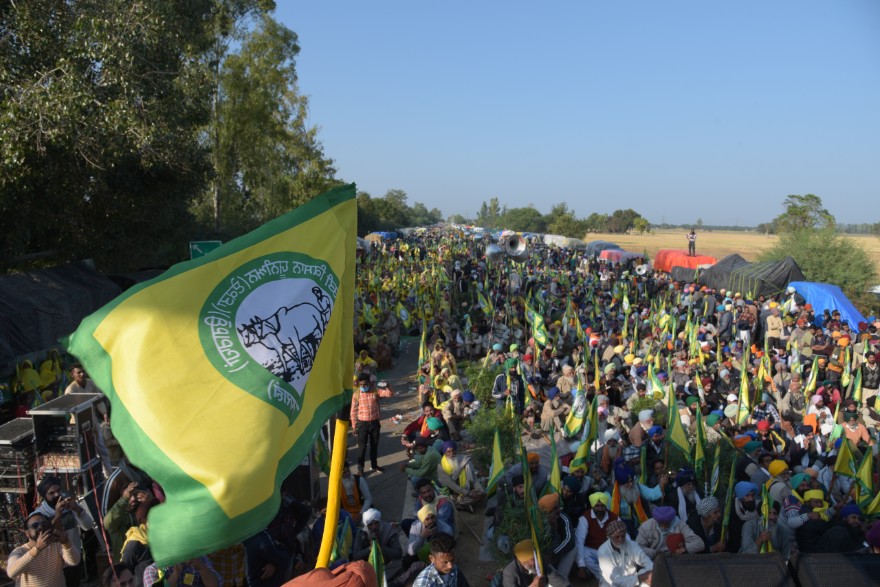The 2020–2021 Indian farmers’ protest against three farm acts passed by the Parliament of India in September 2020, also known as the Farm Bills or “anti-farmer laws”, have stoked up many long running arguments around food production and security. A number of farmer unions and politicians say it could leave the agricultural sector in a compromised position as they jostle for position with big agricultural companies.

Photo by Randeep Maddoke
Demand for price support from farmers is a key factor as Unions look to ensure that big agricultural corporates cannot control prices. Government is maintaining the laws will allow farmers to access easier sales of produce including sales directly to purchasers. Are protesters misinformed?
Despite India being largely self-sufficient in grain production, hunger and nutrition remain high on the government radar. Higher suicide levels amongst farmers and low incomes are two issues that many across the agricultural sector are deeply concerned about.
Following the introduction of the acts unions began holding local protests. Farmers’ unions from Punjab and Haryana began a movement named Dili Chalo or Let’s go to Delhi. Tens of thousands of farming union members would march to Delhi in protest. The Indian government took a heavy hand, ordering law enforcement of various states to move on the protesters including using water cannon, batons, and tear gas to prevent the farmer unions entering into Haryana and Delhi. In November 2020 there was a nationwide general strike in support of the farmers. Multiple talks were set up between government and farm unions between October 2020 and January 2021 but with little positive outcome.
By mid December, following receipt of petitions, the Supreme Court of India asked for the removal of blockades around Delhi. Farmers remained defiant. Unions continue to believe that implementation of the farm laws is not a solution.
The Supreme Court of India stayed the implementation of the farm laws in January 2021.
Farmer leaders welcomed the stay order. Six state governments (Kerala, Punjab, Chhattisgarh, Rajasthan, Delhi and West Bengal) passed resolutions against the farms acts, and three states (Punjab, Chhattisgarh and Rajasthan) have tabled counter legislation in their respective state assemblies.
On 26 January 2021, India’s Republic Day, tens of thousands of the farmers drove in convoy into Delhi in protest. Pre-sanctioned routes permitted by the Delhi Police were ignored resulting in violent clashes between police and protestors. Towards the end of the day protesters even reached Red Fort and installed farmer union flags and religious flags on the mast on the rampart of the Red Fort.
On 19 November 2021, the union government decided to repeal the bills, and on 29 November both houses of Parliament passed the Farm Laws Repeal Bill, 2021. Following the announcement of the repeal of the farm laws, farmer unions continued with the demand for guaranteed minimum support prices (MSPs), reminding the government of the aim of doubling farmers’ income by 2022.
